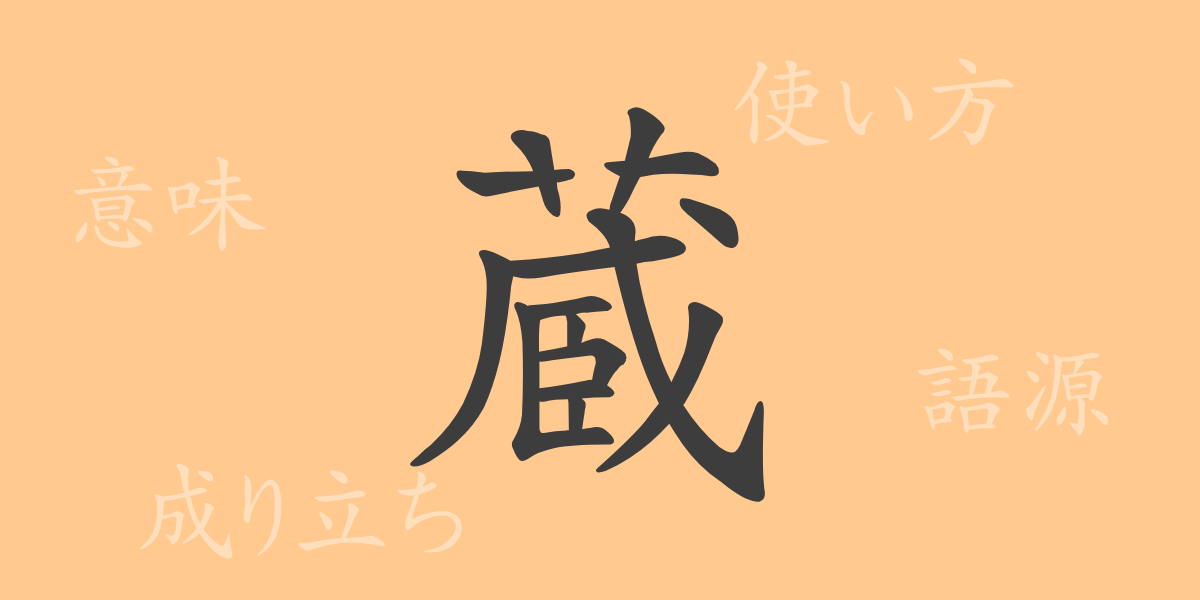(Japanese) Kanji character “(蔵)” (ぞう – zō) is more than just a symbol in Japan’s culture and history. It plays a crucial role in Japanese homes and various expressions, deeply rooted in the lives of Japanese people. This article delves into the origin, meaning, usage, readings, stroke count, and radical of “(蔵)”, exploring its profound significance. Through idiomatic expressions and proverbs using “(蔵)”, let’s unravel the rich expressions this Kanji holds.
Etymology of 蔵 (ぞう – Zō)
Tracing the etymology of “(蔵)”, we find its origins in ancient China. Originally written as “藏”, it derived from pictograms meaning to stack things and hide them. Over time, “藏” evolved to refer to places for storing valuable goods. When it arrived in Japan, it became established as a Kanji primarily used for buildings to store food and property.
Meaning and Usage of 蔵 (ぞう – Zō)
In modern Japanese, “(蔵)” is used to denote places or buildings for storing goods. It is also used metaphorically to express storing talents or emotions within oneself. Examples include “storing food in a (蔵)” and “a secret stored in the heart (心に蔵する秘密)”.
Readings, Stroke Count, and Radical of 蔵 (ぞう – Zō)
“(蔵)” is a commonly used Kanji in Japan, standardized in its readings and structure:
- Readings: On’yomi (音読み) ‘ゾウ’ (zō), Kun’yomi (訓読み) ‘くら’
- Stroke Count: 16 strokes for “(蔵)”
- Radical: Radical is “(艹)” (くさかんむり)
Idioms and Proverbs Using 蔵 (ぞう – Zō) and Their Meanings
There are numerous idiomatic expressions and proverbs involving “(蔵)”:
- 蔵書 (ぞうしょ – zōsho): Collection of books owned by an individual or library.
- 心蔵 (しんぞう – shinzō): Hidden feelings or thoughts deep in one’s heart.
- 蔵出し (くらだし – kuradashi): Bringing out or presenting old items or works anew.
- 酒は蔵で醸すより出て旨い (さけはくらでかもすよりでてうまい – sake wa kura de kamosu yori dete umai): This proverb indicates that things become more valuable when they leave their original place.
Conclusion on 蔵 (ぞう – Zō)
The Kanji “(蔵)” is an essential element in Japanese homes and culture, with applications ranging from physical storage spaces to psychological meanings. Understanding the rich history and meanings of this character can lead to a deeper comprehension of the Japanese language. We hope the knowledge shared about “(蔵)” in this article enhances your understanding of language and culture.

























